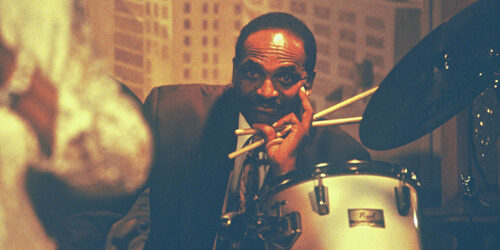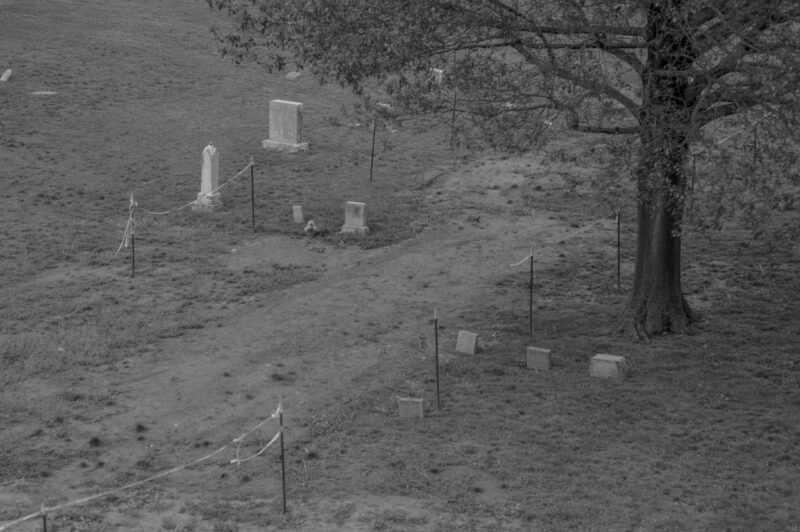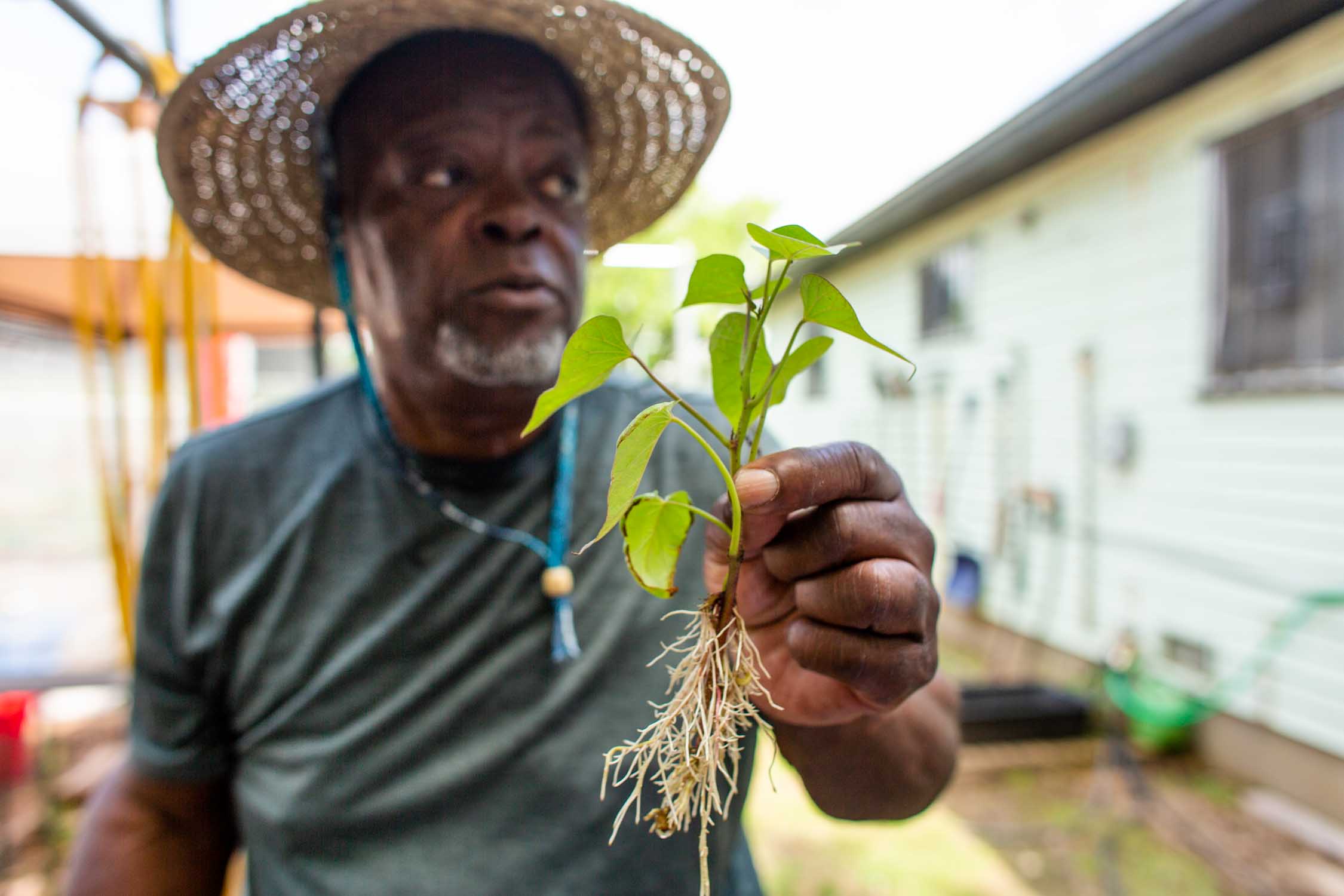
The Oklahoma Eagle Newswire
“Greenwood holds a special place in my heart…I was born on Greenwood in a rooming house, atop Holiness’s grocery store in 1937.”
Washington Irving Rucker is a proud Black Tulsan. Despite being born long after the events that America is only now coming to grips with – he recently turned 84 – Rucker’s reflections on growing up in segregated Tulsa and around Deep Greenwood speak to the lasting trauma experienced by the Black community following the race riot of 1921, and the resilience embodied in Deep Greenwood’s rebirth and in the fortunes of a native son.
A born storyteller, Rucker’s got a million of them. They often revolve around his early life and the obstacles he overcame to make it out of Tulsa and chart a career that took him around the world as a Jazz musician.
Rucker’s stories can be moving, like the ones about him climbing the “mawberry” tree as a child with friends. Some are heartbreaking, like when he is robbed of the “Best Boy” honor in grade school, despite having the highest GPA in his class (wrong color). Others are inspiring, like when teacher, C.D. Tate, knowing that Rucker had no father in his life, volunteers to take him to a father-son banquet. And a few stories are a little of both, like when he recounts being initially rejected from the Booker T. Washington High School band, but eventually granted a spot after a classmate declares to the instructor “Mr. Fields, Sain Sprangs can play, let him join the band!” And so he did.
I now know that some of the stories I’ve heard also describe his connection to the event that America is now commemorating: the Tulsa Race Riot of 1921. Though told as anecdotes, his stories paint a picture of a community trauma that, while muted, was never completely forgotten.
When I asked Rucker what he knows about “Black Wall Street,” the first thing he did was correct me on my language. “The term, Black Wall Street is foreign to my ears. I grew up, learned to play music, and had a career as a musician on Deep Greenwood. It’s always been Deep Greenwood.”
Okay then. With that bit settled and me properly schooled, we moved on to talk about the race riot in 1921: what, if anything, he remembered being told about it; and how – amazingly – he would not learn the full extent of the massacre until nearly half-a-century afterward.
“The history of Black folks was taught in parts...no mention of a riot was ever spoken,” he said. “It was always a ‘disturbance,’ not a race riot. We didn’t talk about it. We didn’t learn about it in school.”
Rucker’s recollections do suggest, however, that not everything was forgotten.
“Vernon Baptist was a block away from Greenwood and Archer and had evidence and remnants of fire as did the other church on Elgin and Eastern. The basements were burned and left to remind folks of the ‘disturbance’ and to set the tone for Blacks north of Archer. As a kid, we went to Bible study from school to these churches,” he said, adding, “And still, Blacks remained mum. It was as though the riot never happened.”
In retrospect, the evidence of fire damage became a cautionary tale to the youngsters sitting for Bible lessons, know your place and stay in it, was being communicated loud and clear.
Some memories painted a vivid picture of the cruelty inflicted during the riots. Rucker recalls that Tulsa’s lone Black detective, John Smitherman, had one ear missing. According to him, “They say the white folks cut off his left ear and made him eat it during the ‘disturbance.’”
As Rucker grew old enough to venture out on his own, nearly all evidence of the race riot was gone. “By the time I came around in the mid-forties, Deep Greenwood had risen, been rebuilt, and was again the center of black businesses, entertainment, and commerce. There was absolutely no evidence of the race riot that had taken place; save for mentions in passing of ‘minor disturbances.’”
With Deep Greenwood well established in its second life, Rucker would leave Tulsa in 1955 to join the Navy and so begin his 60-year career as a musician. The words of a mentor would prove prophetic: “This pair of sticks will take you all over the world.” And so they did. He would eventually land in Los Angeles where – sometime in the 1970s – he would learn about the true horror of the massacre in Deep Greenwood. “It wasn’t until I was a grown man living in California that I first learned about some race riot in Tulsa. I had never heard about it in that way.”
Following the Oklahoma City bombing in 1995, when some news outlets declared it to be America’s first act of domestic terrorism, Rucker would angrily object to the characterization, which he came from ignorance or an attempt to diminish the experience of Black Tulsans in 1921. He told his daughter how airplanes were used to bomb Black Americans in 1921; and how local veterans and law enforcement were a part of the mob.
And Rucker would later recount how a remnant of those munitions was found in 1945 by a childhood friend, James Bolton, who had been looking for scrap metal for the war effort. Black children were known to walk up Brickyard Hill on their way to school, so the idea that an unexploded bomb would be left there was, he said, “A cruel reminder of the catastrophic event that in a way shaped the mentality of Blacks who lived north of Archer.” He laments the ongoing – and not too subtle – segregation that is still evident, with Blacks living largely on the North side of Archer and Whites living on the South Side.
This week, Viola Fletcher, the oldest living survivor of the attack testified to Congress. She spoke about the far-reaching impact on Black Tulsans who saw family fortunes wiped out and journeys toward self-sufficiency and determination derailed. “I have lived through the massacre every day. Our country may forget this history, but I cannot. I will not, and other survivors do not. And our descendants do not,” she said. Fletcher is among the Black Tulsans and others calling for compensation for their losses.
Rucker has mixed feelings about the commemorations underway; especially in today’s racially charged climate. “I hold on to my Greenwood roots and my love for Deep Greenwood with all my heart to this day,” he said. “That there would be a celebration of this time in our history, though, is tantamount to the trauma and pain it must have been in 1921.”
Acknowledging the massacre in Deep Greenwood is an important first step, he concedes, but he is firm that it can’t be the last. “I do hope that voices are raised, not silenced. I do hope we stand up for all that is due to us as citizens of America. I want to hear the drums of freedom and hope and equality before my time is up.”









